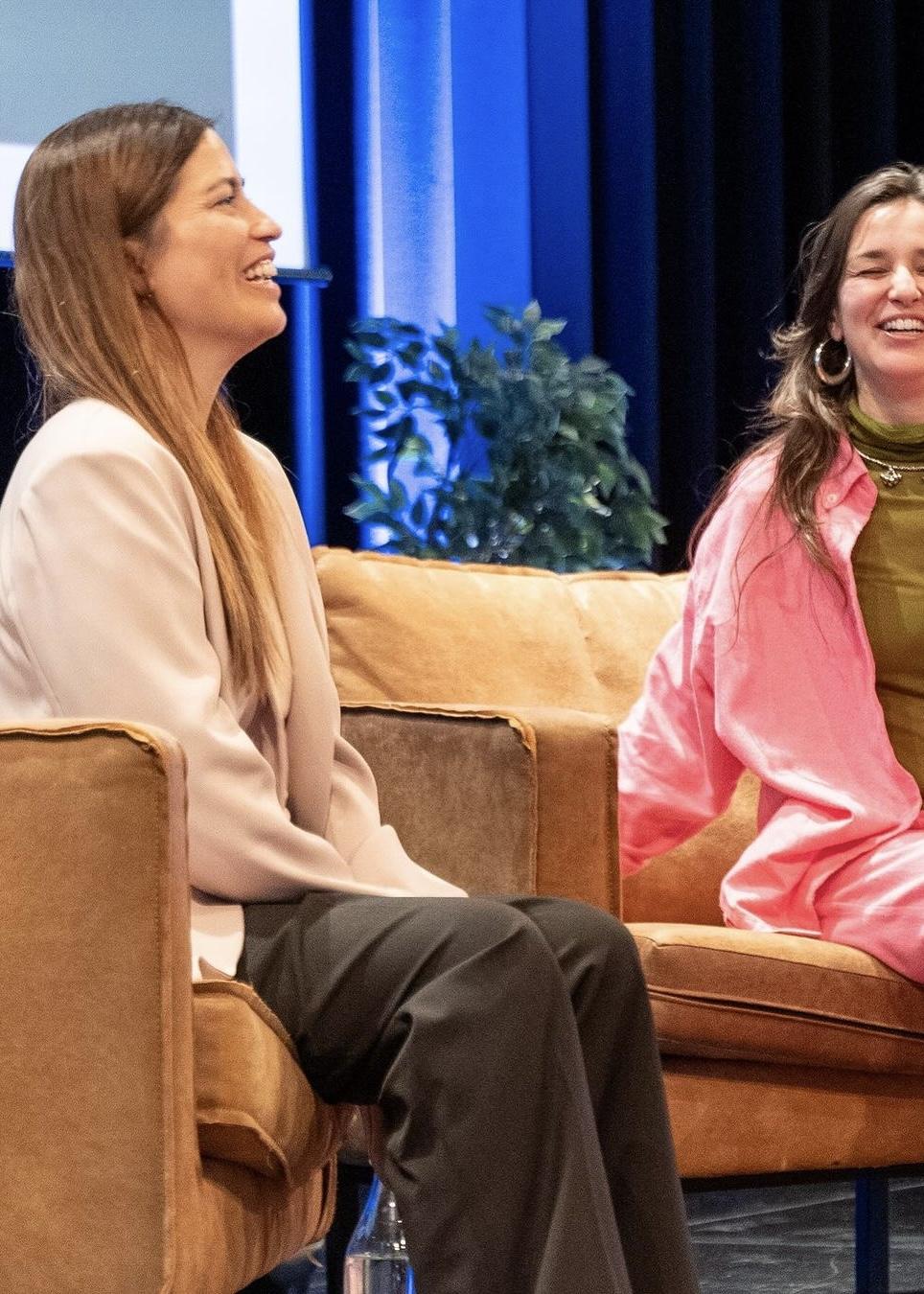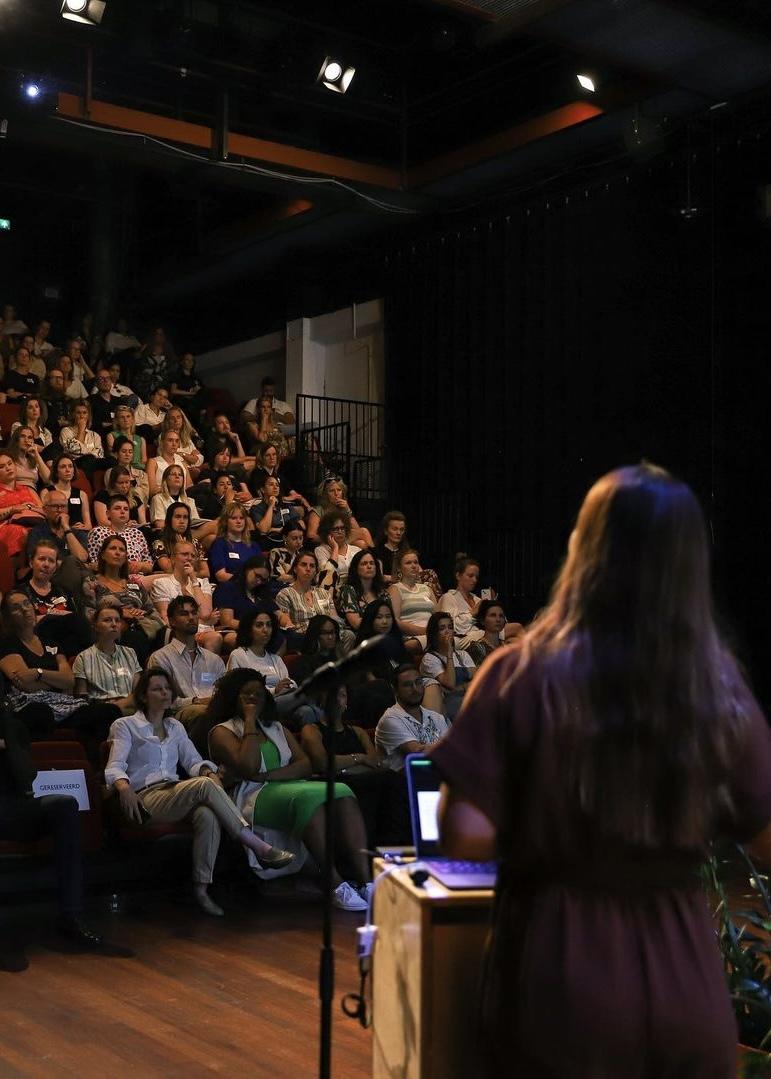Nadine Ridder strives for a more equitable and just society. She works with organizations to help them act and communicate more confidently on Diversity, Inclusion, and Equity (DEI). Her clients come from various industries, including marketing, technology, design, culture, non-governmental organizations, and education.
Nadine is also active in the public debate against injustice and for equity. Her opinion writings have appeared in publications such as the NRC Handelsblad, Het Parool, and De Volkskrant, as well as online platforms such as Oneworld.nl and Lilith Magazine. Last year, she published the trend study ‘Inclusivity is not for everyone’ for Platform Innovation in Marketing.
Nadine is a well-known speaker and moderator with experience in leading organizations. She also serves on the board of the ‘Brainwash festival,’ the largest thinking festival in the Netherlands and Belgium.
T. How has your diverse cultural background shaped your perspective on identity and judgment, and could you share more about the impact it has had on your worldview?
N. My bicultural background has taught me from a young age that people tend to identify us based on aspects that deviate from the norm, often forming judgments and expectations about us based on their perceptions of the broader groups we belong to. I’ve become conscious of the rich diversity within diversity itself, recognising that identities are comprised up of many different parts and can change or mean different things in various contexts. This perspective has taught me that there are several narratives beyond the dominant one, and each story has multiple sides ready to be investigated and understood.
T. As someone who has become equipped to fight injustice, what advice would you give to others who are passionate about creating positive change in society?
N. When you’re passionate about driving positive change in society, my advice is to first explore your talents and capabilities to identify your area of influence. Whether your strengths lie in connecting people, public speaking, writing, organizing, or creating content, each of these skills can be harnessed to make a meaningful impact. Additionally, if you, your family, or friends have access to valuable social networks or financial resources, these can also be leveraged for the greater good. Understanding the extent of your circle of influence is in my opinion one of the most powerful tools you possess in your quest to effect positive change.
T. Can you share any challenges you’ve faced in your work and how you’ve overcome them to continue making a positive impact?
N. The greatest challenge I face in my daily work is the resistance to change. In a world where new perspectives continually challenge our established ideas and belief systems, many of us find it difficult to adapt to this evolving reality. It’s not uncommon for people to respond by resorting to denial, downplaying the issue, shooting the messenger, or even engaging in victim-blaming, as a way to avoid confronting the need for honest reflection and the responsibility we may bear in contributing to the problem.
In my experience, approaching resistance with empathy is immensely valuable. I recognize that embracing change is a process that doesn’t happen overnight and requires significant effort. By seeking to understand the underlying reasons for resistance and working to facilitate a more gradual and supportive transition, I aim to foster an environment where individuals can feel more comfortable with the idea of change. Viewing those with opposing opinions as fellow human beings rather than enemies allows me to continue this work from a place of kindness. And that is what I require in order to be content and happy
T. What inspires you most about the initiatives and projects you’re working on for social equity?
N. Definitely young people. The unwavering commitment of young people to justice is a constant source of inspiration for me. Their uncompromising passion frequently underlines the generational transition we are experiencing. It’s as if my age is caught between two worlds: one in the “old” era, when marginalised groups had few opportunity to express their concerns and conformity to the prevailing standard was the norm, and the other in the “new” world. In this new society, the younger generation is born with a keen awareness of existing injustices, the ability to create their own communication channels, and an active desire for representation in all aspects of life. Seeing the youthful generation’s reluctance to adapt to conventional rules is both liberating and tremendously valuable.
T. In the midst of a busy schedule, what are your go-to self-care rituals to unwind and recharge?
N. To recharge, I enjoy spending time with my partner, friends, and family. But my time in solitude is also very important to me. Whether it’s for meditation, reading, or simply resting. Self-care is an important part of my routine, and I enjoy pampering myself with massages, relaxing baths, and the sauna.
I firmly follow a personal rule: no work-related activity after 6 p.m., and I make an effort to avoid reading emails in the evenings and on weekends. Furthermore, I keep my bedroom as a technology-free haven dedicated to rest and relaxation.
Furthermore, I get my energy from places that bring people together who have similar aims and ideals. These surroundings give me the positive energy I need to counteract the resistance I face in my professional or online activities.
T. Can you share a favorite memory or experience that always makes you smile?
N. Every time someone recognizes a part of themselves in my stories, it warms my heart and confirms that I’m on the right track.
T. Is there a personal goal or dream on your bucket list that you’re excited to pursue in the future?
N. I’d like to publish a book and work abroad for a while.
Instagram: Nadine_ridder
Linkedin: /nadineridder/






